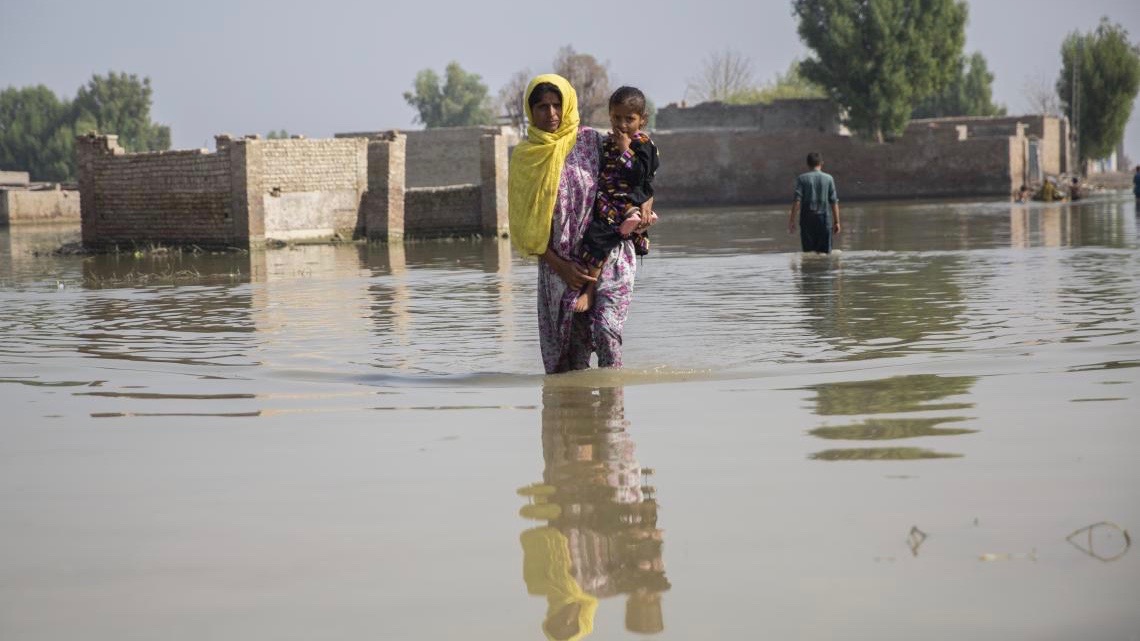More than 10 million people, including children, continue to lack access to safe drinking water more than six months since floods devastated large parts of Pakistan, according to the latest UN report.
On March 21, the United Nations Children’s Fund (UNICEF) released a report saying that families in the flood-affected areas are being compelled to drink and use potentially disease-ridden water, which is contributing to the widespread outbreaks of waterborne diseases such as cholera, diarrhea, dengue, and malaria. Tens of thousands of impoverished, hungry children are fighting a losing battle against acute malnutrition and water-borne diseases.
Torrential rains, beginning in June 2022, submerged one-third of Pakistan. The catastrophic flooding killed at least 1,739 people. More than 2.2 million houses were reportedly damaged and nearly 33 million people were directly affected, as per UNICEF’s estimate.
The flooding also damaged most of the water systems in the affected areas, compelling over 5.4 million people (including 2.5 million children) to solely rely on contaminated water from ponds and wells, the report said. “Only 36% of the country’s water was considered safe for consumption despite the country’s drinking water supply system covering 92 per cent of the population.”
Highlighting the lack of access to basic sanitation such as toilets, the report notes that “open defecation has increased by more than 14 percent in the flood-affected regions,” which is “disproportionately affecting children, adolescent girls and women who are at added risk of shame and harm when defecating outdoors.”
According to UNICEF, water-borne diseases prevent children from getting the vital nutrients they need and plunges them into “a vicious cycle of malnutrition and infection.”
The report mentions that malnutrition is associated with half of all child deaths in the country. “In flood affected areas, more than 1.5 million boys and girls are already severely malnourished, and the numbers will only rise in the absence of safe water and proper sanitation,” it notes.
A day before World Water Day on March 21, UNICEF’s representative in Pakistan Abdullah Fadil called upon donors to continue providing aid to Pakistan, in order to help millions of children. He said, “it is imperative that the voices and the needs of children in Pakistan are prioritized at all costs and that children are placed at the heart of all post-flood recovery and resilience plans.”
“Safe drinking water is not a privilege, it is a basic human right,” Fadil added.





